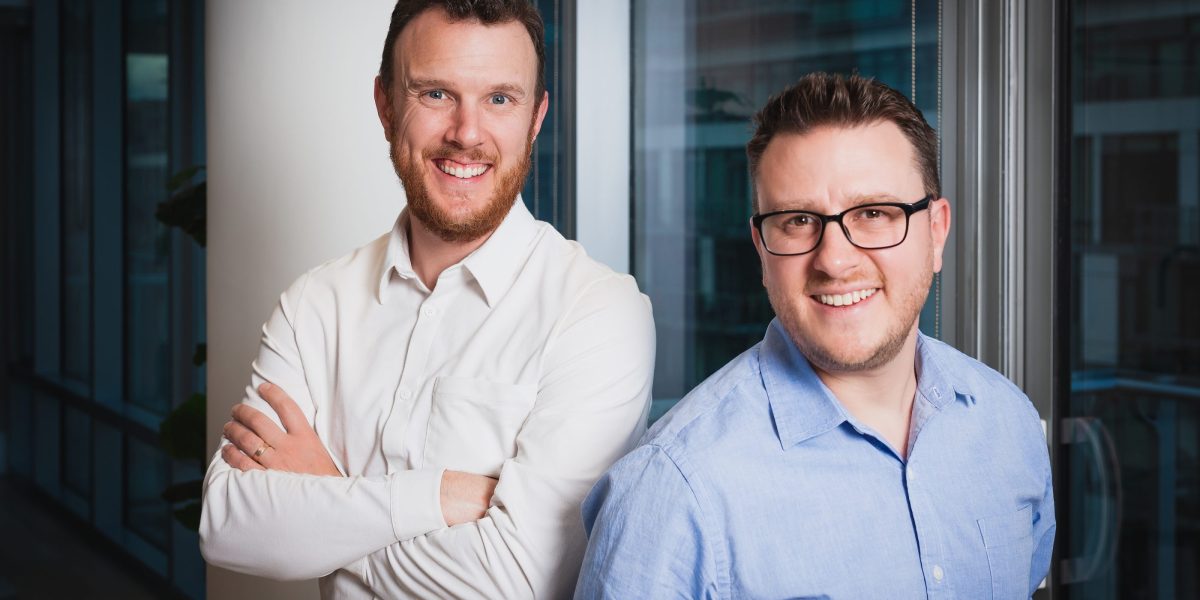How we built our bootstrapped startup different and sold it for $40M. (Hint: We ignored some myths)
Startup mythology is extremely compelling—Zuck! Musk! Gates!—but it doesn’t do entrepreneurs any favors.


You may think you know this story. Two inventors in a garage build something special, move to Silicon Valley, get a bajillion dollars of seed capital, hire a ton of people, turn it into a multimillion-dollar business overnight, and change the world as we know it. You think of Zuck or Musk (or Gates or Jobs, if you prefer) and believe this is the way entrepreneurship “happens.”
Except it doesn’t usually happen like that. In fact, it rarely happens like that. Startup mythology is extremely compelling; many aspiring and current founders think that if you simply follow the pop-culture approach to business you’ll be more successful. After all, those companies achieved the coveted “unicorn” status.
But the truth is many entrepreneurs follow the stereotypical startup journey, yet it doesn’t do them any favors. Consider that 70% of all startups fail in years two to five, or that approximately 80% of tech and e-commerce startups fail, or even that 75% of all venture-backed startups go belly up.
Beating VC-backed rivals
Going further, and challenging the funding myth in particular, consider that brands such as Nike, Shopify, GoPro, Basecamp, Vuori, GitHub, and literally hundreds more all bootstrapped their way to multibillion-dollar valuations.
We want the mythology to be reality. We want to believe that if we follow the same recipe, the same lucrative outcomes will follow for us. We want validation from our peers that what we’re doing is actually a good idea. We want to believe that in an instant we could make a pile of money while simultaneously changing the world.
There’s a better, myth-free way to reach your startup dreams. Or at least, that’s what happened to me. I cofounded a SaaS startup, called AppArmor, with my brother. We avoided seed capital like the plague and instead “funded” our company with a revolutionary new model—our customers. We didn’t pack up our lives and move to the Valley. We gave the market time to develop, rather than trying to “get big fast.” We over-invested in customer service. We led our team like actual alphas do—with empathy. We took on the VC-backed firms and major market players with ease. We became one of the fastest-expanding companies nationwide, with triple-digit year-over-year growth.
And after 10 years we sold for $40 million. Yeah, you’re right, that’s not a unicorn—not even a narwhal. But for us, it unlocked generational wealth while helping us achieve our company’s mission on a tremendous scale.
I’m not here to be a startup prophet. Our journey was a slog, and we absolutely did not do everything right. Hell, we occasionally even bought into certain startup myths that lead to catastrophic results (more on that in a second). But the way we built, scaled, and supported our business was a more fulfilling and efficient way to professional success.
We share more in our upcoming book, Startup Different: The Myth-Busting Blueprint for your Multi-Million Dollar Business.
Startup mistakes
But what does it mean to startup different? There are two distinct components: operational and psychological. In the first case, we were deeply skeptical of anything we felt “we ought to do” because we were a startup. This runs the gamut from how we built our product to how we treated our staff to having a beer keg in the office (although, to be fair, we did briefly buy into that last one). Stereotypical startup malarky instantly became a red flag.
Some of this was learned through painful experience. For example, we believed the myth that startup culture was largely the same across all aspiring unicorns. To that end, we tried to copy the Netflix culture and make it our own. But it was a disaster and put our company back at least a few years. In our book, we describe this tremendous misstep in detail:
“Oh man. We knew we had messed up. The issue was that we were not Netflix. Not even close. Not the same market, customers, nothing. Chris and I didn’t even work like Netflix would have intended—we came in at 9:00, worked our butts off, limited our time off, and wore a certain level of attire. While there were some Netflix ideas we enjoyed and kept as we grew AppArmor, the fact of the matter was that we didn’t understand, and frankly didn’t entirely like, the Netflix culture. This was our culture failure.”
The ship that was our startup’s culture was listing aimlessly at sea, leading our entire staff to jump overboard. We had to rehire our whole team and determine what culture meant to us, all because we believed a single startup myth. Looking back on this moment, I recall wondering if it was all over.
Critically challenging any idea, particularly those that are rooted in the success of other startups, is a must for any entrepreneur. It’s one of the many lessons and 33 myths that we explore in our book as we try to pay it forward to our entrepreneurial peers.
And then there’s the psychological element to starting up different. Entrepreneurs crave credibility, validity, and legitimacy for their business. When the credibility crisis hits, founders start looking for answers in all the wrong places. Suddenly they want their startup to become what peers or society think it ought to be, which leads to short-term non-empirical decision making. Their business challenges snowball into a startup failure avalanche.
Validation from the market—not peers
People were often deeply skeptical of our firm, telling us we were “funemployed,” simply a “lifestyle business,” or even (outrageously) “not a startup.” Still, when we pushed back on our skeptics, we were always stunned that little to no evidence was provided as to why their suggestion was going to help us. They were outsiders looking in at our business, but with very specific, Shark Tank-esque, and sometimes bizarre expectations as to what our business ought to be.
But resisting the urges of the dark side of the entrepreneurship-force is no trivial task; still, it remains essential to any different startup’s success. Sure, you could get lucky following a pop-culture approach to business, but the odds are against you. Channel your inner Luke while silencing your inner Anakin.
We focused on validation in the market instead of the validation of our peers. It didn’t matter to us that we didn’t have a huge headcount or millions of dollars in funding because we knew we had a well systematized, massively profitable, and (eventually) culturally sound business. The startup noise was just a distraction to us; we knew that the market was rewarding us—and would continue to do so—despite what society was saying our company should do.
Our success isn’t an aberration, and, honestly, it’s not that uncommon. But startup mythology is sexy and it continues to maliciously crush the dreams of entrepreneurs who could have been successful. Increasingly, many businesses out there harbor suspicions of the “startup BS,” and now I hope you do as well. Be deeply skeptical of startup pop culture the next time you’re considering how to best launch a company or are confronted with a significant business decision. Oh, and tell the misguided haters to shove it. You too can startup different.
Read more:
The opinions expressed in Fortune.com commentary pieces are solely the views of their authors and do not necessarily reflect the opinions and beliefs of Fortune.





